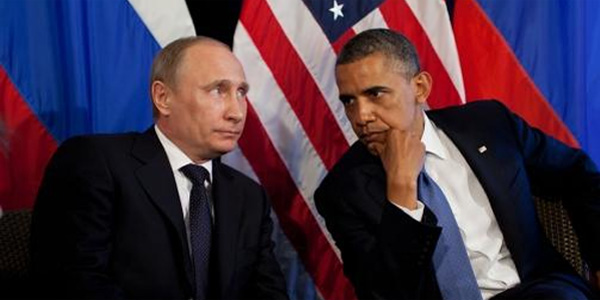In 2003 Ido Oren published an important book “Our Enemies and US: America’s Rivalries and the Making of Political Science” in which he analyzed American political science as shaped by the image of an enemy, first Nazi Germany and then the Soviet Union. In particular, he showed that the commonly popular institutional definition of democracy, from which Western media and political class proceed, was a response to the perceived threat from ‘totalitarian’ regimes in the 1950s when the state role in politics was viewed as intrusive and potentially dangerous.
Even while searching for truth and objectivity, social science remains an important tool of national identity construction. However, in times of international conflicts, the highly complex process of identity building is largely reduced to nationalist juxtapositions of us versus them, superior versus inferior, and good versus evil. The complex emotional and behavioural interactions between the Self and the Other that are normally based on both their differences and similarities, in this case are distorted, grossly simplified, and presented in binary terms.
Alongside social science, media serves to translate and distribute social meanings within a political community. Following everyday developments media is even more likely to turn from open and self-critical discourses to those of superiority and defensiveness under international tensions. Today’s simplistic and highly negative presentations of each other in Russian and American media go hand in hand with the two nations’ tense political relations which scholars frequently describe as a “new Cold War.”
In my recent published Politics article, “The dark double: the American media perception of Russia as a neo-Soviet autocracy, 2008–2014“, I assess how the mainstream U.S. press represented by editorials in three leading newspapers makes sense of Russia’s political developments. In particular, the American media works to convey to the reader the view that the Russian state is fundamentally corrupt, unsustainable, and doomed to failure. The media also commonly presents “Putin’s Russia” as aggressive and interventionist abroad – whether in Syria or Ukraine – in order to cover for its domestic failures. Such view is then reproduced in policy circles with President Barak Obama stating that “Russia doesn’t make anything” and that it is merely a “regional power that is threatening some of its immediate neighbors not out of strength but out of weakness.”
What this narrative leaves out is a complexity of Russia’s political developments and motives of its actions at home and abroad. Many scholars agree that despite multiple problems the country faces, its political system remains generally stable and resilient. While often critical of domestic developments, most Russians remain supportive of Putin as the leader to guide them out of the current economic crisis. The Kremlin’s foreign policy is also much too complex to be described as aggressively anti-Western especially while not considering the West’s own record of ignoring Russia’s interests in the post-Cold War world.
What my article suggests is that media should be studied not only as a tool of political or commercial groups, but also as a reflection of national values, myths, and stereotypes. In order to be successful, media must find appropriate metaphors, images, and historical parallels to connect with those nationally-held beliefs. To further explore the issues raised in the article, scholars should ask questions about conditions under which the complex identity processes are reduced to nationalistic representations of the other.
In this respect, it would be important to pay attention to the role played by the state in representing the other, interacting with media, and adopting various information strategies. Media and state are autonomous, yet they may act in concert and coordination. For instance, in the United States the perception of Russia as threatening American values appeared in the mainstream media in the mid-2000s in response to Russia’s deviation from the commonly accepted narrative of the country’s transition to democracy. The U.S. officials did not prioritize values and human rights in relations with Dmitry Medvedev, but changed the approach when Putin made public his decision to return to presidency. Since 2011 and especially following Obama’s election for the second term, the media narrative of Russia as a neo-Soviet autocracy converged with the language of the U.S. officials many of whom now viewed Russia as a hostile undemocratic regime. The American state has thus utilized media in its own strategy of value promotion.
Look back at Politics’ other recent Russia focused publications here.

